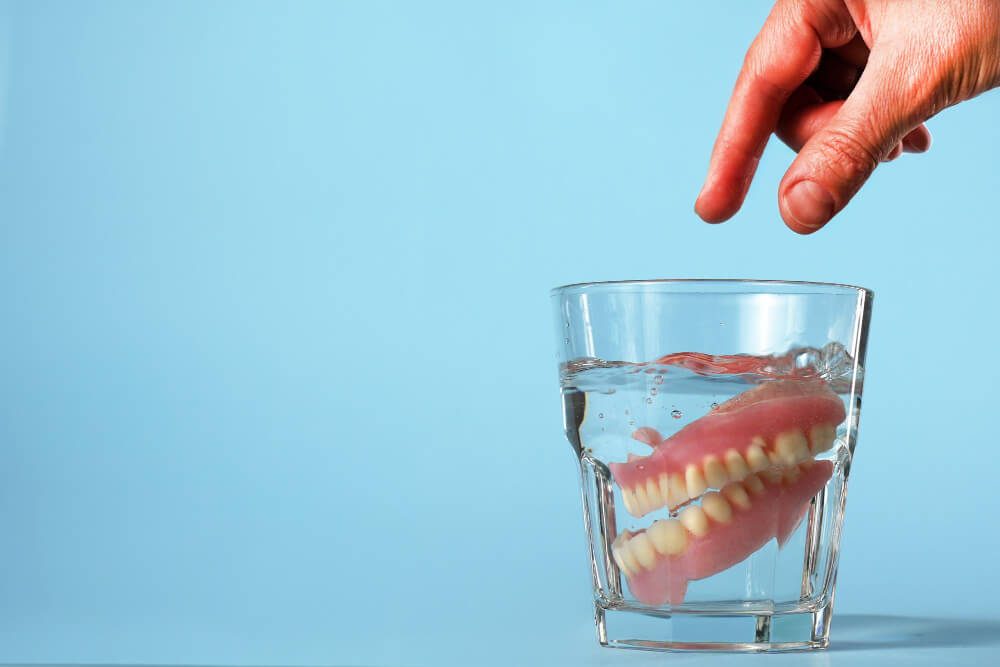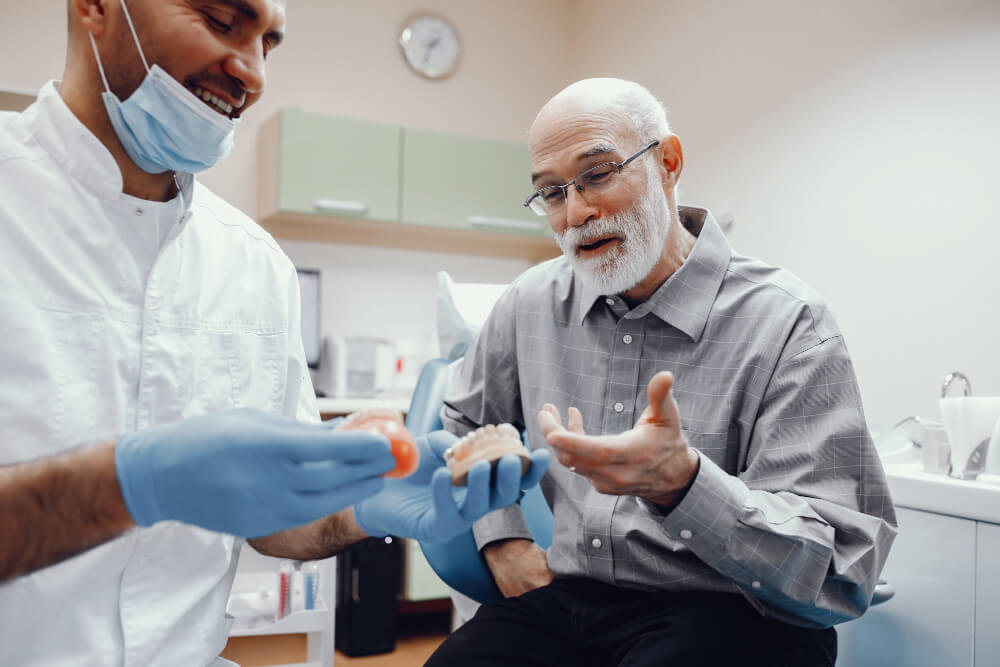How to Remove Plaque from Dentures: Effective Cleaning Methods That Work

Practising daily denture care effectively manages plaque and bacteria levels in your mouth. Regular denture cleaning also keeps your prosthesis in good condition for longer.
But, even though you clean your dentures daily, you might notice an accumulation of plaque developing that doesn’t respond to your usual cleaning techniques. If you’re searching for how to remove plaque from dentures, this article will explain how to remove plaque from dentures and improve your oral care routine.
What Is Plaque, And Why Should It Be Removed?
Plaque is a thin, sticky biofilm that coats the surfaces in your mouth. It also covers your dentures when you wear them throughout the day.
Plaque is a combination of saliva, bacteria, and food acids, and it needs to be removed every day with thorough denture cleaning. When plaque builds up on your dentures, it doesn’t just affect their appearance—it attracts more bacteria.
This bacteria can compromise the integrity of any remaining natural teeth and contribute to bad breath, gum disease, and the development of sore spots or oral infections. If plaque isn’t removed, it can eventually solidify into tartar, which is more challenging to clean and may require professional removal.
How To Remove Plaque From Dentures?
You may enhance your denture care routine and eliminate plaque from dentures more thoroughly through several ways. One advantage for denture wearers is that it’s often easier to clean all the surfaces of a removable prosthesis than natural teeth.
However, plaque can still build up if cleaning isn’t done correctly or consistently. It’s good practice to inspect your dentures regularly to check for the presence of accumulated plaque. If you spot it, you could add some of these ideas to your denture cleaning regimen:
Try a baking soda solution.
Mix a solution of two teaspoons of baking soda with one cup of warm water. Stir the baking soda with a spoon to help it dissolve, and leave your dentures in the cup overnight.
The following morning, brush the dentures thoroughly with a toothbrush, and any remaining plaque deposits should brush away easily, thanks to the enzymatic properties of the baking soda.
This method is a gentle yet effective way to break down plaque and deodorise your dentures at the same time.
Use a vinegar solution.
If your dentures do not have any metal components, you can try a vinegar solution for denture cleaning. Vinegar is very acidic, and its high acidity makes it quick and easy to remove plaque buildup.
Place your dentures in a cup, cover them with apple cider or white vinegar, and leave them overnight. Scrub them with a toothbrush the next morning before rinsing them under water. This simple soak can help dissolve tartar and restore a smoother, cleaner surface.
Include hydrogen peroxide in your denture care.
Hydrogen peroxide lifts plaque buildup from denture surfaces and breaks it down using its foaming action. It also has mild whitening properties that can reduce stains without damaging the denture material.
To use, place your dentures in a cup and cover them with hydrogen peroxide for a few hours or overnight. Brush them the next morning and rinse them thoroughly before putting them back in your mouth.
This is a particularly helpful solution for anyone wondering how to remove plaque from dentures using products already available at home.

Have your dentures professionally cleaned
Maintaining the health of your mouth and making sure your dentures continue to fit comfortably requires routine dental checkups. At these appointments, you can ask your Auburn dentist to clean your dentures professionally.
Professional cleaning can remove hardened deposits that home care may miss, especially if plaque has already turned into tartar. Your Auburn dentist can also inspect the condition of the dentures and recommend improvements in your cleaning technique if needed.
What To Avoid In Denture Care
Even though deep soaking is effective in removing dental plaque from your dentures, there are some things you should not do:
- Do not use very hot or boiling water for denture cleaning, as it can damage your prosthesis. It can also cause it to change shape, which affects the way it fits.
- Do not use abrasive substances.
- Do not use hard-bristled toothbrushes, as they can scratch and damage your prosthesis.
- Do not use whitening toothpaste as it doesn’t affect the colour of dentures.
Practising proper care will not only help with removing plaque from dentures but also preserve their appearance and structure for longer use.
Denture Care in Auburn
Denture care is an integral part of maintaining a healthy mouth and looking after any remaining teeth. To find out more about dentures or for help with removing plaque from dentures, please contact My Local Dentists for an appointment.
Call (02) 8214 8999 or visit us at Shop Q50, Auburn Central Shopping Centre, 57-59 Queen Street in Auburn.
